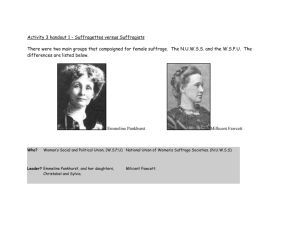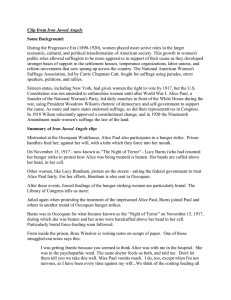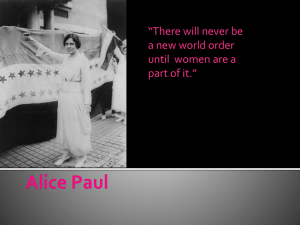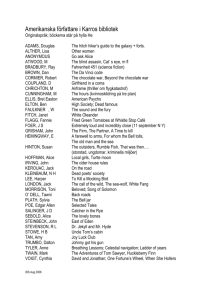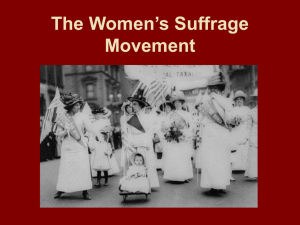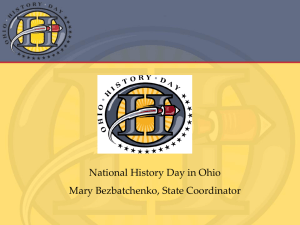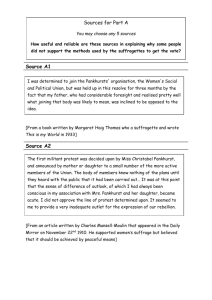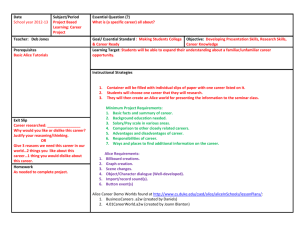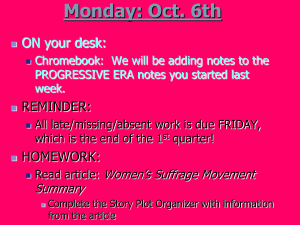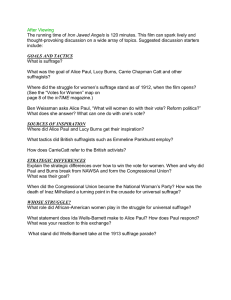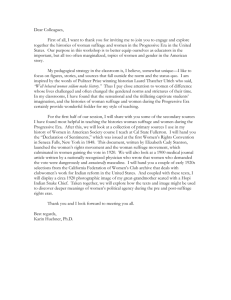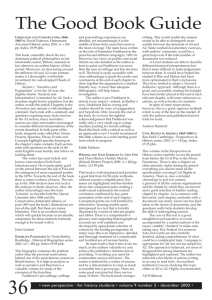A Room of One's Own
advertisement
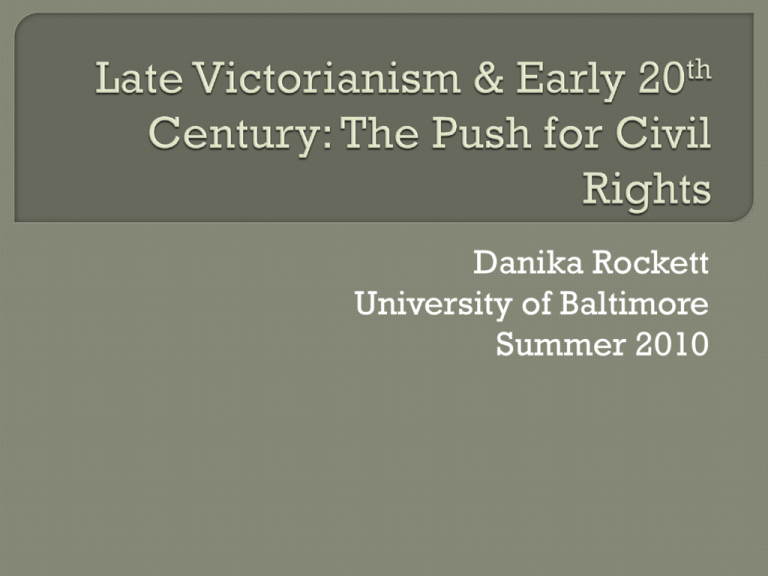
Danika Rockett University of Baltimore Summer 2010 Kate Chopin – The Awakening excerpt Virginia Woolf – A Room of One’s Own excerpt Alice Duer Miller – “Our Idea of Nothing at All,” “Home and Where It Is” Chris Willis – “’Heaven Defend Me from Political or highly-educated women!’: Packaging the New Woman for Mass Consumption” Louisiana Creole background Forerunner of 20th century feminist writing The Awakening focuses on the confines of domestic life for women Desiree’s Baby looks at racism in the South She wrote as a way of coping with depression after her husband died An essay based on a series of lectures “A woman must have money and a room of her own if she is to write fiction.” Judith (“Shakespeare’s sister”) • Uneducated • Trapped at home • Forced into marriage via beating and humiliation Criticized by Alice Walker for “excluding women of color.” Are Women People? (1915) Come Out of the Kitchen (1916) Women Are People! (1917) Famous suffragist Wrote satirical poems Her writing had a significant effect on American public opinion There was a New Woman, as I’ve heard tell, And she rode a bike with a horrible bell, She rode a bike in a masculine way, And she had a spill on the Queen’s Highway As “New Woman” she is known ‘Tis her enemies have baptised her But she gladly claims the name; Hers it is to make a glory, What was meant should be a shame 1883 – 1900: More than 100 New Woman novels New Women were stereotyped • Unnattractive • Asexual • Girton Girls and Bluestockings • Avid Bicyclists *See today’s reading by Chris Willis “Descendants” of Mary Wollstonecraft 1851 – 1901: Women in the workforce increased from 2.8 million to 4.7 million • teachers, nurses, clerks, Post Office* 1867: National Society for Women’s Suffrage New Women, and those who campaigned for women’s rights, were often considered “sick” (see Willis 63) 1832 Reform Acts: Women officially can’t vote 1865: John Stuart Mill elected to Parliament Suffragettes were imprisoned and force-fed • This shocked the British public 1903: Emmeline Pankhurst formed Women’s Social and Political Union 1918 Qualification of Women Act: 30 and older 1928 Representation of the People Act: 21 and older Iron Jawed Angels (2004) United States and suffrage • Individual states could allow the vote, but no Constitutional Amendment existed • Wyoming was first to allow women’s suffrage • The 19th Amendment passed in 1920 Carrie Nation was a famous 19th century American woman who opposed the sale of alcohol Had a reputation for vandalizing establishments that sold alcohol Her image was used as an icon for feminists Described herself as “a bulldog running along at the feet of Jesus, barking at what He doesn't like” National American Women’s Suffrage Association Typically favored Democrats Notable leaders • Susan B Anthony (1890 – 1900) • Carrie Chapman Catt (1900 – 1904, 1915) • Anna Howard Shaw (1904 – 1915) National Women’s Party Did not align itself politically Founded by Alice Paul in 1916 This is the religion that Alice Paul belonged to. Throughout the 19th century, Quakers advocated to effect reforms first within their religion and then in the wider arena of American politics: • Ending Slavery • Fair Treatment of Native Americans • Women's Rights • Conflict Resolution • Relief for All Who Suffer National Women’s Party demonstrating in Washington D.C., 1917 Had Ph.D. from U of PA Founded NWP Original author of proposed Equal Rights Amendment of 1923 Her home is now the Sewall-Belmont House and Museum in D.C. With Alice Paul, she helped form the NWP One of the first women to attend Yale Her activism was inspired by Emmeline Pankhurst Suffered from Pernicious Anemia Suddenly collapsed during a speech. Her last public words were, "Mr. President, how long must women wait for liberty?"[1] Known as the martyr of the Women's Suffrage movement. Journalist, newspaper editor, activist Exposed racial hate crimes in the South Founded the National Afro-American Council, which later became the NAACP Formed the Women's Era Club, the first civic organization for AfricanAmerican women
